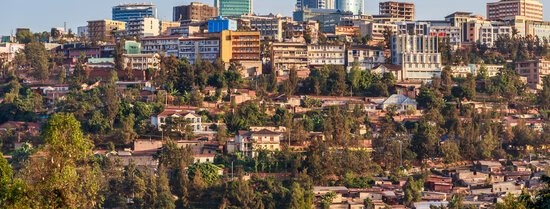More than 50 African PhD candidates and their supervisors from universities across the Netherlands - including Erasmus University Rotterdam (EUR) and the Rotterdam Global Health Initiative (RGHI) - recently came together for a retreat designed to do more than connect researchers. The goal: to strengthen equitable, transdisciplinary research collaborations and foster a shared space for learning reflection, and real-world impact.

The event was organised by GROW in Research, a national network of seven Dutch universities committed to interdisciplinary, intersectoral, and international research. GROW supports a cohort of 51 African PhD Candidates based at Dutch institutions, co-funded by the European Union's Marie Skłodowska-Curie Actions, and works with over 120 supervisors and 45 academic and societal partners. At the heart of GROW is the belief that researchers should have the power to design their own projects and choose supervisors who align with their priorities, with a strong emphasis on co-creation between researchers in the Global South and the Netherlands.
From policy to practice: co-creation at the core
A keynote from Amal Ali, PhD candidate at Erasmus School of Health Policy & Management (ESHPM) and adviser to the Minister of Health in Somaliland, captured a central message to the retreat: "Often we expect governments to adopt research findings without having shaped the questions. For research to truly inform policy, governments must be engaged from the outset - not just as end-users, but as co-creators of knowledge that reflects their priorities and realities."
Reimagining research funding
A dynamic panel tackled a pressing issue: funding cuts in African research. African and Dutch participants discussed how this challenge could drive innovation, encouraging the development of locally driven funding models that reduce reliance on external donors and increase ownership.
Practical tools and shared growth
Workshops brought researchers together across disciplines and backgrounds. One session introduced Evidence and Gap Mapping (EGM) to guide research focus and policy relevance. "As an early-career researcher, I found the Evidence and Gap Map a very practical tool for identifying initial gaps and guiding research efforts," said Vivienne Mulema, Ugandan PhD candidate in Health Economics at ESHPM.
The retreat also created space for informal learning and connection. "For me, GROW was not just about research, it was about community, shared challenges, and global learning. It reminded me that our local experiences matter in shaping global health," reflected Runnah Chiyembekezo Kutsokwe, Malawian PhD candidate in Health Care Governance at ESHPM.
The GROW retreat offered a rare and valuable opportunity for researchers and supervisors across institutions, including EUR and RGHI, to collaborate on more equitable, grounded, and policy-relevant global health research.

- Associate professor
- More information
The Rotterdam Global Health Initiative (RGHI) is the academic network of global health research and education at Erasmus University Rotterdam nd Erasmus MC. Their mission is to address and alleviate health inequalities worldwide, contributing to improved living conditions and advancing high-quality, equitable healthcare globally.
- Related content

